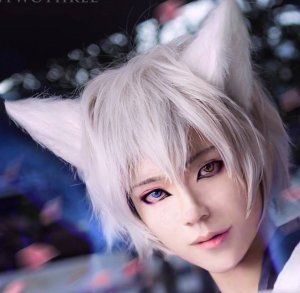A Heartfelt Ode to Macau
Begin Again is a charming drama aired during the celebration of the 25th anniversary of Macau's return to China after over 400 years of Portuguese rule. Beyond being a simple drama, it serves as a love letter to Macau, showcasing the city’s idyllic lifestyle, unique culinary heritage, and cultural blend of East and West. Macau is also a unique confluence of Mandarin and Cantonese, and the drama beautifully highlights this linguistic duality, adding depth and authenticity to its portrayal of the city.
Set against Macau’s slower-paced lifestyle—a stark contrast to the hustle of nearby metropolises like Hong Kong and Shenzhen—the series weaves its story through vibrant visuals of local delicacies, historic landmarks, and contemporary attractions. Its promotional intent is clear, and it delivers beautifully on this front.
Storyline
The narrative takes its time to introduce the four main characters, whose chance meetings evolve into meaningful connections. While the overarching plot takes a backseat to Macau’s scenic and cultural showcase, the character interactions provide a gentle framework for the drama’s progression.
֍ Mai You Ge (Amy Chen): An advertising executive in Macau to oversee a promotional video project for an international hotel. Lost in a foreign city where she doesn’t speak the language, she meets Xu Jun Le (Sunny Sun), a charismatic local who doubles as her informal guide and companion.
֍ Chen Jia Hui (Zhong Chu Xi): An art director and artist representing Macau’s glamorous and artistic side. She crosses paths with Han Jun Hao (Elvis Han), a professional race car driver in town for the thrilling Macau Grand Prix. Their first encounter—a spontaneous and adrenaline-fueled motorcycle race—sets the stage for a story brimming with speed and passion.
֍ The third and quirkier subplot involves a hotel manager who finds herself babysitting an 8-year-old Eurasian boy—a piano prodigy preparing for a recital.
Each storyline feels secondary to Macau itself, which remains the true star of the show.
What Worked
The drama shines in its portrayal of Macau as a city of contrasts—new and old, glamorous and traditional, East and West. The slow-paced, idyllic lifestyle is a refreshing escape, and the sumptuous local cuisine is almost a character of its own.
֍ Cultural Representation: Through Mai You Ge’s wide-eyed exploration, viewers are treated to a culinary and cultural feast. Her onscreen enthusiasm for food is contagious.
֍ Character Diversity: Each character offers a different lens on Macau. Chen Jia Hui embodies sophistication and high society, Han Jun Hao captures the adrenaline-pumping excitement of the Macau Grand Prix and the city’s thrill-seeking side, and Mai You Ge represents those yearning to escape the chaos of modern life. However, the standout is Xu Jun Le (Sunny Sun), whose carefree, carpe diem attitude is infectious. His simple yet rich life philosophy resonates deeply.
֍ Language Differences: Though both Mandarin and Cantonese are considered Chinese, their spoken forms are vastly different—almost like separate languages. The drama cleverly highlights the nuances of these differences, often using them as a source of humor. Misunderstandings due to language barriers and differing terminology provide moments of levity and authenticity, giving viewers insight into the cultural and linguistic richness of Macau.
֍ Cinematography: The city is beautifully shot, with an emphasis on its blend of historic charm and modern vibrancy. The Grand Prix scenes, in particular, are brimming with energy, capturing the electrifying rush of high-speed racing and the iconic atmosphere of the event.
What Could Be Improved
While the child actor playing the young Eurasian boy performs admirably, his babysitter Casey suffers from awkward and stilted dialogue. Additionally, Isabella (Lisa-Marie Tse) feels overly exaggerated, making her scenes slightly uncomfortable to watch.
Final Thoughts
Don’t expect a gripping or intricate plot from Begin Again—its primary goal is to promote Macau, and it excels in this role. The lighthearted stories of the characters serve as a vehicle to explore the city, its cuisine, and its culture. The Grand Prix scenes add a much-needed dose of adrenaline, and the language differences inject humor and authenticity.
More than just a drama, Begin Again serves as an invitation to visitors and expatriates alike to take a break from their exhausting "996" work lifestyle. It even subtly encourages the idea of moving to Macau for a life inspired by carpe diem—a slower pace filled with rich experiences and simple joys.
At its heart, Begin Again delivers a powerful reminder: the most important part of life is not about results, and it’s not just about the journey—it’s about the company we keep. The last two episodes are especially moving, as they highlight the importance of stepping out of one’s comfort zone and making changes when life isn’t fulfilling. As Einstein put it, “If you keep doing the same thing over and over again, it will not give you a different outcome.”
For anyone curious about Macau or simply looking for a cozy, picturesque watch with a touch of high-speed excitement, Begin Again is worth your time.
Set against Macau’s slower-paced lifestyle—a stark contrast to the hustle of nearby metropolises like Hong Kong and Shenzhen—the series weaves its story through vibrant visuals of local delicacies, historic landmarks, and contemporary attractions. Its promotional intent is clear, and it delivers beautifully on this front.
Storyline
The narrative takes its time to introduce the four main characters, whose chance meetings evolve into meaningful connections. While the overarching plot takes a backseat to Macau’s scenic and cultural showcase, the character interactions provide a gentle framework for the drama’s progression.
֍ Mai You Ge (Amy Chen): An advertising executive in Macau to oversee a promotional video project for an international hotel. Lost in a foreign city where she doesn’t speak the language, she meets Xu Jun Le (Sunny Sun), a charismatic local who doubles as her informal guide and companion.
֍ Chen Jia Hui (Zhong Chu Xi): An art director and artist representing Macau’s glamorous and artistic side. She crosses paths with Han Jun Hao (Elvis Han), a professional race car driver in town for the thrilling Macau Grand Prix. Their first encounter—a spontaneous and adrenaline-fueled motorcycle race—sets the stage for a story brimming with speed and passion.
֍ The third and quirkier subplot involves a hotel manager who finds herself babysitting an 8-year-old Eurasian boy—a piano prodigy preparing for a recital.
Each storyline feels secondary to Macau itself, which remains the true star of the show.
What Worked
The drama shines in its portrayal of Macau as a city of contrasts—new and old, glamorous and traditional, East and West. The slow-paced, idyllic lifestyle is a refreshing escape, and the sumptuous local cuisine is almost a character of its own.
֍ Cultural Representation: Through Mai You Ge’s wide-eyed exploration, viewers are treated to a culinary and cultural feast. Her onscreen enthusiasm for food is contagious.
֍ Character Diversity: Each character offers a different lens on Macau. Chen Jia Hui embodies sophistication and high society, Han Jun Hao captures the adrenaline-pumping excitement of the Macau Grand Prix and the city’s thrill-seeking side, and Mai You Ge represents those yearning to escape the chaos of modern life. However, the standout is Xu Jun Le (Sunny Sun), whose carefree, carpe diem attitude is infectious. His simple yet rich life philosophy resonates deeply.
֍ Language Differences: Though both Mandarin and Cantonese are considered Chinese, their spoken forms are vastly different—almost like separate languages. The drama cleverly highlights the nuances of these differences, often using them as a source of humor. Misunderstandings due to language barriers and differing terminology provide moments of levity and authenticity, giving viewers insight into the cultural and linguistic richness of Macau.
֍ Cinematography: The city is beautifully shot, with an emphasis on its blend of historic charm and modern vibrancy. The Grand Prix scenes, in particular, are brimming with energy, capturing the electrifying rush of high-speed racing and the iconic atmosphere of the event.
What Could Be Improved
While the child actor playing the young Eurasian boy performs admirably, his babysitter Casey suffers from awkward and stilted dialogue. Additionally, Isabella (Lisa-Marie Tse) feels overly exaggerated, making her scenes slightly uncomfortable to watch.
Final Thoughts
Don’t expect a gripping or intricate plot from Begin Again—its primary goal is to promote Macau, and it excels in this role. The lighthearted stories of the characters serve as a vehicle to explore the city, its cuisine, and its culture. The Grand Prix scenes add a much-needed dose of adrenaline, and the language differences inject humor and authenticity.
More than just a drama, Begin Again serves as an invitation to visitors and expatriates alike to take a break from their exhausting "996" work lifestyle. It even subtly encourages the idea of moving to Macau for a life inspired by carpe diem—a slower pace filled with rich experiences and simple joys.
At its heart, Begin Again delivers a powerful reminder: the most important part of life is not about results, and it’s not just about the journey—it’s about the company we keep. The last two episodes are especially moving, as they highlight the importance of stepping out of one’s comfort zone and making changes when life isn’t fulfilling. As Einstein put it, “If you keep doing the same thing over and over again, it will not give you a different outcome.”
For anyone curious about Macau or simply looking for a cozy, picturesque watch with a touch of high-speed excitement, Begin Again is worth your time.
Was this review helpful to you?


 1
1 5
5 1
1



















